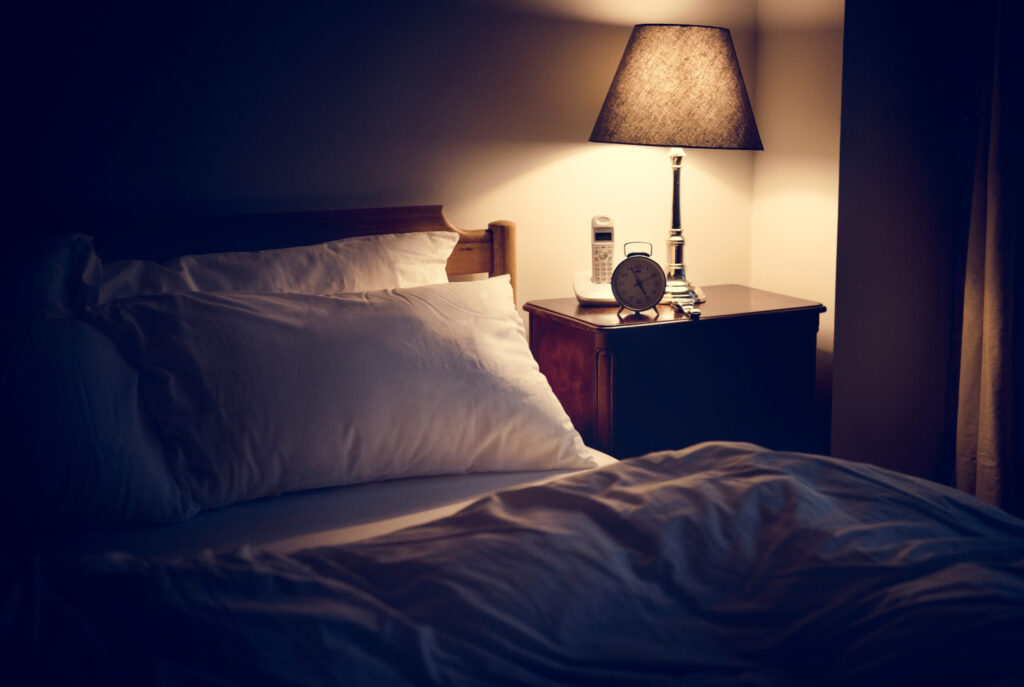Are you wondering how to improve sleep quality and get better nightly sleep? Then, you have to focus on your sleep hygiene and implementing good sleep habits. By doing so, you can make sure you are getting the healthy sleep needed for optimal physical and mental health and better overall quality of life.
Hence, let’s see how you can revamp your habits to promote better nightly sleep.
Tips to Get Better Nightly Sleep
Have a Set Sleep Schedule
One of the good sleep habits for improving sleep is following a set schedule to help your brain and body get accustomed to getting the recommended amount of sleep each night. The crucial thing here is to have a consistent wake-up and bedtime, even on weekends. You should also prioritize sleep over other activities like work, study, exercise, etc. And you should avoid prolonged daily naps (longer than 30-60 minutes) as they can throw off sleep at night.
Follow a Bedtime Routine
Following a consistent nightly routine is yet another healthy sleep hygiene practice that can help you get better nightly sleep. This means that you should implement a set of activities before going to bed, always in the same order, to help your brain and body understand that it’s bedtime. For example, you can try some relaxation techniques, do some light stretching, read, listen to soft music, take a warm shower or a bath, etc.
Implement Healthy Daily Habits
You can also promote better nightly sleep if you revamp your habits during the day. Following positive daily routines will certainly support your circadian rhythm and help you avoid sleep disruptions. So, ensure you get enough exposure to daylight, especially sunlight, exercise regularly, limit alcohol and caffeine consumption in the evenings and later afternoons, stop smoking, and never have large heavy meals for dinner.
Optimize Your Sleep Environment
Finally, let’s focus on your bedroom environment as it is one of the key components of good sleep hygiene. In other words, getting better nightly sleep doesn’t require you to only revamp your habits but your bedroom environment as well. To make your bedroom sleep-friendly you have to invest in a comfortable high-quality mattress, pillows, and bedding. You should also ensure the temperature is on the cooler side, lights are blocked out, and noise is reduced.

The Importance of Sleep Hygiene
As we already mentioned, getting quality sleep is vital for both your health and quality of life, regardless of your age. Indeed, getting better nightly sleep is beneficial for everyone from children to older adults. But to be able to get the sleep needed, good sleep habits and proper sleep hygiene practices must be implemented.
According to research, creating good sleep habits is a crucial component of health (1). Forming and following healthy practices make healthy behaviors automatic which creates a continuous process of positive reinforcement.
Consequences
But now let’s look at the clinical and pathological consequences of poor sleep habits.
- Chronic insomnia adversely affects the normal neural pathways to the brain, resulting in difficulties in concentration, adverse mood swings, depression, hallucinations, and even trigger mania in individuals with bipolar disorders (2).
- Immune systems are also affected. Certain cytokines which aid in sleep also provide the immune system to function more efficiently, thus enhancing the body’s ability to defend against illness. (3).
- Hormone production is dependent on your sleep. For example, testosterone production requires at least 3 hours of uninterrupted sleep, which is characteristically about the time of the first R.E.M. episode and waking up throughout the night will affect this hormone production. (4). This interruption can also affect growth hormone production especially in children and adolescents which assist the body to build muscle mass and repair cells and tissues, in addition to other growth functions.
- And lastly, the cardiovascular effects resulting from poor sleep quality are significant. A review of 15 separate studies (Nagai, M., Hoshide, S., & Kario, K., 2010) (5) on the effects of sleep deprivation on cardiovascular events that included almost 475,000 participants demonstrated that over 16,000 events occurred during this period. These cardiovascular events included 8,420 for total cardiovascular disease, 4,169 for coronary heart disease, and 3,478 for stroke. The analysis pointed out that those getting less than 5-6 hours of sleep per night were at a 48% higher risk of coronary heart disease-related mortality or developing the disease. Additionally, those getting 8-9, or more, hours of sleep were at a 38% higher risk. (6)
That said, implementing good sleep habits may be challenging at first, but it will definitely be worth it in the long run.
Therefore, if you find it hard to fall asleep at night, experience sleep disturbances, and suffer from excessive daytime sleepiness, it’s high time for you to revamp your habits and get better nightly sleep. And keep in mind that both your sleep habits and sleep environment can be easily optimized for quality sleep.
References:
1. U.S. Department of Health and Human Services. (2022, July 15). Good sleep for good health. National Institutes of Health. https://newsinhealth.nih.gov/2021/04/good-sleep-good-health#:~:text=Good%20sleep%20improves%20your%20brain,stroke%20to%20obesity%20and%20dementia.
2. Brain basics: Understanding sleep. (2019). Retrieved on February 27, 2024 from https://www.ninds.nih.gov/health-information/public-education/brain-basics/brain-basics-understanding-sleep.
3. Medic G, et al. (2017). Short- and long-term health consequences of sleep disruption. Retrieved on February 27, 2024 from https://www.ncbi.nlm.nih.gov/pmc/articles/PMC5449130/
4. Wittert G. (2014). The relationship between sleep disorders and testosterone in men. https://www.ncbi.nlm.nih.gov/pubmed/24435056
5. Nagai, M., Hoshide, S., & Kario, K. (2010). Sleep duration as a risk factor for cardiovascular disease- a review of the recent literature. Current cardiology reviews, 6(1), 54–61. https://pubmed.ncbi.nlm.nih.gov/21286279/
6. National Institutes of Health (NIH). (2019, March 5). How disrupted sleep may lead to heart disease., Retrieved February 26, 2024 from https://www.nih.gov/news-events/nih-research-matters/how-disrupted-sleep-may-lead-heart-disease








